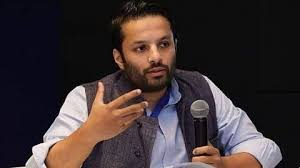‘Conclude probe in 4 weeks’: SC directs SIT investigating Ashoka University professor’s posts on Operation Sindoor

The Supreme Court has stepped in to fast-track a high-profile investigation involving Ashoka University. The case revolves around a professor’s social media posts on Operation Sindoor, a recent military mission. The court directed the Special Investigation Team (SIT) to conclude the probe within four weeks.
This directive comes amid rising debate on national security, freedom of expression, and academic independence.
Supreme Court Moves to Expedite Probe
A bench led by Justice Sanjay Kishan Kaul issued the directive. It asked the SIT to wrap up the probe without further delay. The court made the move after hearing a plea about the length and scope of the investigation.
The professor’s posts allegedly criticized Operation Sindoor, raising questions about military conduct. Some called it a fair academic critique. Others argued it undermined national interest.
The court struck a balance. It acknowledged the importance of free speech while recognizing national security concerns.
Operation Sindoor: What Is It?
Operation Sindoor is a counter-insurgency mission launched by Indian forces. The operation aimed to target cross-border threats and secure sensitive zones.
The mission received widespread praise from officials and the media. It was seen as a bold move to protect national sovereignty.
But controversy erupted when a professor from Ashoka University posted critical remarks online. The posts raised ethical and strategic concerns about the operation.
While some defended the posts as informed critique, others labeled them anti-national and inflammatory.
Academic Freedom vs. National Duty
The SC probe Ashoka University Operation Sindoor episode reveals a deepening conflict. On one side is the right to academic freedom. On the other is the duty to avoid harming national interest.
Legal scholars say both values are essential. “The court is trying to keep a balance,” said advocate Ramesh Arora. “You can’t silence academia, but national security can’t be ignored.”
The Supreme Court’s four-week deadline signals that it wants clarity and closure—without unnecessary delay.
Mixed Reactions in Academia
The academic community responded with concern and caution. Many fear this case might set a precedent that stifles free thought.
A joint statement from faculty across top institutions voiced support for the professor. “Questioning military operations isn’t betrayal,” the letter read. “It’s part of democratic discourse.”
Ashoka University distanced itself from the controversy. The administration stated that individual faculty opinions do not reflect institutional views. However, it affirmed its commitment to free expression.
Government’s Point of View
Officials defending the investigation claim it isn’t about suppressing dissent. They say it’s about checking if any law was broken.
“The SIT is not punishing opinion,” said a senior Home Ministry official. “We’re assessing whether national security was compromised.”
Authorities argue that posts from high-profile individuals carry weight. If such posts spread misinformation or weaken morale, it becomes a legal issue.
Free Speech in a Digital Era
This case shows how digital speech is reshaping boundaries. A single post can reach thousands, sometimes millions. When such speech comes from academics, the impact multiplies.
India’s legal framework is still evolving in this area. Critics say laws are vague. Phrases like “promoting enmity” or “anti-national” are open to misuse.
Meera Kamat, a digital rights researcher, said: “India needs clearer rules. We must protect both national security and free speech.”
The Road Ahead
The SIT has four weeks to submit its final report. This timeline could bring clarity to a sensitive issue.
If the professor is cleared, it might boost confidence in free speech. If not, it could lead to tighter self-censorship in academic spaces.
Experts say this case could become a legal landmark. It may define how far academic critique can go when it intersects with national interests.
Conclusion
The SC probe Ashoka University Operation Sindoor controversy is not just about one professor or one operation. It’s about the kind of democracy India wants to build.
Can we allow sharp criticism of government actions in public forums? Or must national security override all forms of dissent?
The Supreme Court has taken a step toward resolution by setting a clear timeline. The outcome will influence academic freedom, legal norms, and civil liberties for years to come.






